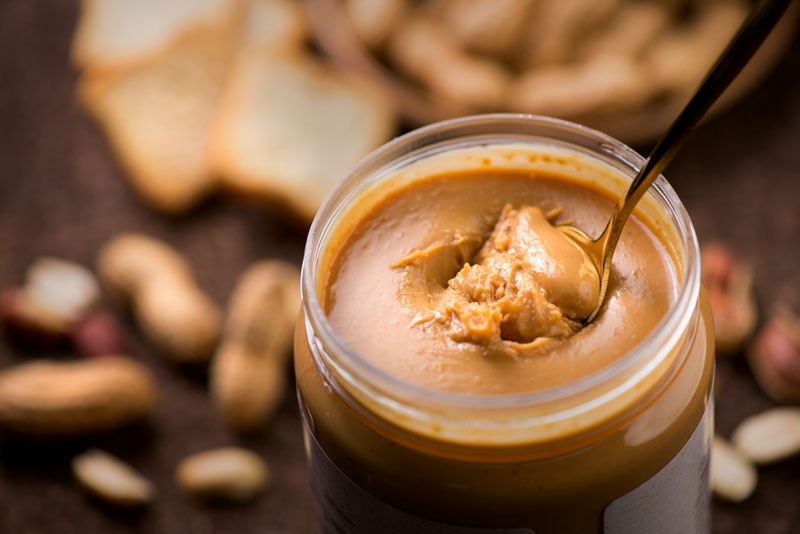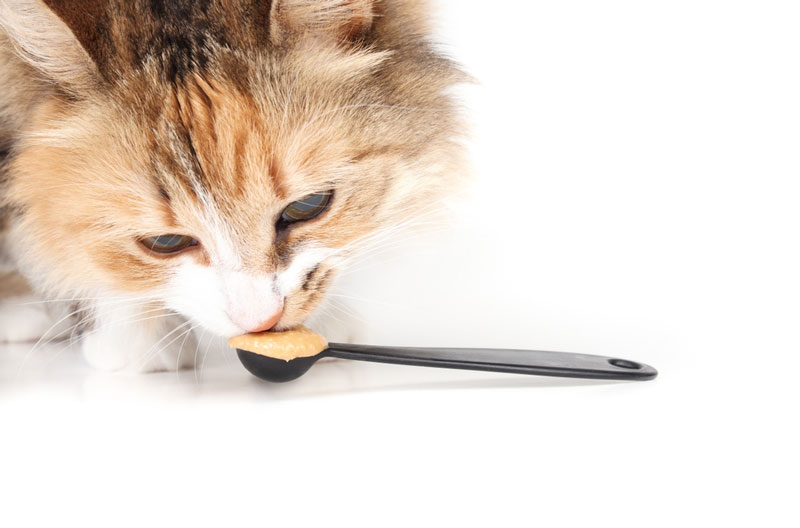Have you ever wondered if your furry feline friend can indulge in a little peanut butter? The answer is both yes and no. While peanut butter isn’t toxic to cats, it is not a necessary part of their diet. Cats are obligate carnivores, which means they thrive on a diet rich in protein from meat. So, while a small lick of peanut butter isn’t likely to hurt your cat, it’s not something they need.
It’s fascinating how our beloved pets can sometimes enjoy foods that are a bit unconventional for their species. Many pet owners are curious about what human foods are safe for their pets to munch on. Peanut butter is often a staple in many households, making this question all the more relevant. As we dig deeper into the reasons behind our cat’s cravings, we will discover how to safely incorporate this treat into their lives.
So, stick around as we explore the ins and outs of cats and peanut butter. We’ll hop through the benefits, risks, and the right way to offer this tasty spread to your curious kitty!
You might also be interested in: Can Cats Eat Yogurt?
How Much Peanut Butter Can Cats Eat?

When it comes to sharing peanut butter with our furry friends, moderation is key. Cats have a smaller digestive system compared to humans, and their bodies aren’t designed to process large amounts of carbohydrates or sugars. While peanut butter isn’t toxic, it is high in fat. Too much fat in a cat’s diet can lead to obesity or even pancreatitis over time. Therefore, if you’re considering giving your cat a taste of peanut butter, it’s essential to do so in moderation.
A small amount, about half a teaspoon, can be an appropriate serving size for an average-sized cat. We all know that cats are pretty clever and whimsical creatures, so you might find your feline attempting to swipe the entire jar! Resisting those tempting little paws is part of the challenge. Begin by offering just a small lick and observe how your cat reacts. Pay attention to any unusual signs or reactions, and always introduce new foods gradually.
If our furry friends happen to enjoy the taste, we can create fun and engaging ways to offer it to them. Whether it’s mixing it into their regular food or using it as a treat during training or playtime, there are many fun possibilities. Just remember to keep a watchful eye on the quantity we’re serving!
Now that we know about portion sizes, let’s look into the benefits and risks associated with peanut butter for our feline friends.
Benefits Of Peanut Butter To Cats
1. Protein Content: Peanut butter offers some protein content, which can excite our feline friends. While cats primarily need protein from meat sources, peanut butter can serve as an occasional treat that gives them a different flavor to explore.
2. Rich Source of Healthy Fats: A small amount of peanut butter can also be a rich source of healthy fats. These fats provide energy to our cats and can help keep their skin and coat healthy. Of course, we’re always on the lookout for that shiny furball look!
3. Swallowing Medication: Peanut butter can come in handy when disguising medications. If your cat is anything like mine, getting them to take a pill is like trying to convince a lion to take a bath. A bit of peanut butter can make swallowing medication much easier when we need to give them something challenging.
4. Bonding Experience: Many of us know that enjoying our own food can be an important bonding experience. Sharing that little taste of peanut butter might help strengthen the bond we have with our cats. It’s about treating our pets like family!
5. Enticing Taste and Smell: Finally, the taste and smell can entice our cats to be more adventurous eaters. Those picky eaters might think, “Hey, that peanut butter is pretty tasty, maybe I’ll try a few more things!”
Dangers Of Feeding Peanut Butter To Cats
Just as there are benefits to allowing our cats to taste peanut butter, we have to be cautious of the potential risks involved. After all, we want our furry friends to thrive and be healthy.
One of the primary concerns is that many peanut butter brands often include sugar, salt, or artificial sweeteners like xylitol. Xylitol is toxic to both dogs and cats. It can cause severe hypoglycemia and liver failure. Always read the label before sharing any treat with our feline friends.
Another risk associated with peanut butter is the potential for allergies. Although peanut allergies are more common in dogs, they can occur in cats too. Signs of an allergic reaction include itching, swelling, or gastrointestinal upset. If we notice any unusual behaviors or symptoms after introducing peanut butter, we should avoid offering it again and consult the vet.
Additionally, fat is a significant concern. While some fat can be beneficial, excessive fat can lead to obesity and other health concerns like pancreatitis. Obesity can increase the risk of other health problems, such as diabetes or joint issues. It’s essential to keep our feline friends at a healthy weight.
We should continuously observe our cat’s overall health, keeping any potential side effects in mind when offering them new treats. Remember to consult our veterinarian before introducing any new foods into our cat’s diet to ensure they stay safe and healthy!
Substitute Of Peanut Butter For Cats
1. Pureed Pumpkin: If you’re looking for an alternative treat that is both cat-friendly and delicious, consider pureed pumpkin. It’s packed with fiber and can aid digestion for our feline friends.
2. Plain Yogurt: Another great option is plain yogurt. Just like humans, some cats might enjoy the creamy texture, while also benefiting from probiotics that promote healthy digestion. However, not all cats can digest dairy, so moderation is key.
3. Cooked and Shredded Chicken: How about considering some cooked and shredded chicken? It’s a favorite among most kitties, and it delivers quality protein, leaving them purring with joy!
4. Fish: This is another beloved protein source. A small piece of cooked salmon can be an enticing treat, as cats are drawn to the smell and taste of fish.
5. Catnip: Let’s not forget about catnip! As a delightful superfood for many felines, catnip can provide a fun way to engage our cats’ minds and bodies. Sprinkling a bit on their toys or scratching post is sure to get their tails wiggling!
Can Cats Eat Peanut Butter? Frequently Asked Questions
Can Peanut Butter Be Toxic To Cats?
While pure peanut butter isn’t toxic, certain ingredients like xylitol can be harmful. Always read the labels before sharing.
What If My Cat Eats Too Much Peanut Butter?
If our cats consume an excessive amount of peanut butter, we should monitor them closely for any unusual symptoms. If we notice any adverse reactions, we ought to reach out to our vet.
Is There A Cat-friendly Peanut Butter Brand?
Some brands create peanut butter specifically formulated for pets. Always verify the ingredients and consult a vet if unsure.
Can Kittens Eat Peanut Butter?
It’s best to wait until our kittens are older and on solid foods before offering any peanut butter. Cats have different nutritional needs at various life stages.
How Often Can I Give My Cat Peanut Butter?
We should limit treating our cats with peanut butter to special occasions. A few times a month could be suitable without causing any harm.
Final Thoughts
In the end, sharing peanut butter with our beloved cats can be a fun treat, but it is essential to do so in moderation and with caution. Understanding our pets’ nutritional needs and preferences ensures they stay healthy and happy.
While it’s tempting to share our favorite snacks, it’s important to choose pet-friendly alternatives. There are plenty of other options available that can provide joy without the associated risks. For more insights on pet care, don’t hesitate to explore more topics on our site, including what walnuts means for your furry friend!


